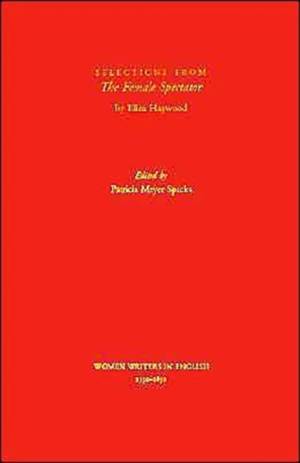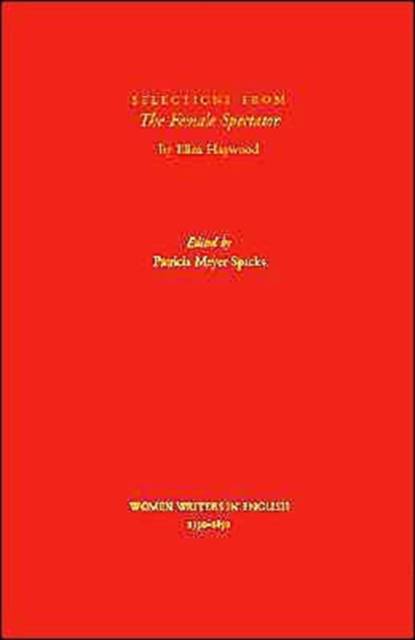
Je cadeautjes zeker op tijd in huis hebben voor de feestdagen? Kom langs in onze winkels en vind het perfecte geschenk!
- Afhalen na 1 uur in een winkel met voorraad
- Gratis thuislevering in België vanaf € 30
- Ruim aanbod met 7 miljoen producten
Je cadeautjes zeker op tijd in huis hebben voor de feestdagen? Kom langs in onze winkels en vind het perfecte geschenk!
- Afhalen na 1 uur in een winkel met voorraad
- Gratis thuislevering in België vanaf € 30
- Ruim aanbod met 7 miljoen producten
Zoeken
Omschrijving
After Aphra Behn, Eliza Haywood was the most important English female novelist of the early eighteenth century. She also edited several serial newspapers, the most important of which, the Female Spectator, was the first modern periodical written by a woman and addressed to a female audience. This fully annotated collection of articles selected from the Female Spectator includes romantic and satiric fiction, moral essays, and social commentary, covering the broad range of concerns shared by eighteenth-century middle-class women. Perhaps most compelling to a twentieth-century audience is the evidence of what we might be tempted to call feminist awareness. By no means revolutionary in her attitudes, Haywood nonetheless perceives the inequities of her periods social conditions for women. She offers pragmatic advice, such as how to avoid disastrous marriages, how to deal with wandering husbands, and what kind of education women should seek. The essays also report on a broad range of social actualities, from the craze for tea drinking and the dangers of gossip to the problem of compulsive gambling. They allude to such larger matters as politics, war, and diplomacy, and promote the importance of science and the urgency of developing informed relations with nature.
Specificaties
Betrokkenen
- Auteur(s):
- Uitgeverij:
Inhoud
- Aantal bladzijden:
- 336
- Taal:
- Engels
- Reeks:
Eigenschappen
- Productcode (EAN):
- 9780195109221
- Verschijningsdatum:
- 28/01/1999
- Uitvoering:
- Paperback
- Formaat:
- Trade paperback (VS)
- Afmetingen:
- 145 mm x 215 mm
- Gewicht:
- 462 g

Alleen bij Standaard Boekhandel
+ 322 punten op je klantenkaart van Standaard Boekhandel
Beoordelingen
We publiceren alleen reviews die voldoen aan de voorwaarden voor reviews. Bekijk onze voorwaarden voor reviews.









